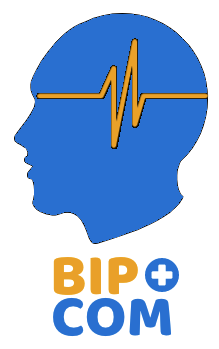

Bipolar Disorder (BD) is a complex and recurrent genetic disorder that varies widely in its clinical presentation and aetiology. It is considered a major public health concern due to its high prevalence, chronic nature, and high degree of disability. BD is also associated with premature mortality, with life expectancy shortened by 10-20 years. Medical comorbidities (MC), including type 2 diabetes, cardiovascular disease (CVD), musculoskeletal disorders, renal disorders, neurological conditions, endocrine pathologies, and metabolic syndrome (MetS), are common among BD patients.
Metabolic syndrome (MetS) is a cluster of metabolic abnormalities that occur together and increase the risk of developing cardiovascular disease, stroke, and type 2 diabetes. MetS is characterized by a group of risk factors that are linked to obesity, insulin resistance, and inflammation. The specific criteria used to diagnose MetS vary, but they typically include a combination of the following:
|
Diagnostic Criteria for Mets |
Values |
|
Waist Circumference |
>102 cm (M); >88 cm (F) |
|
Fasting Glucose |
>100 mg/dL |
|
Blood Pressure |
>130/85 mmHg |
|
Triglycerides |
>150 mg/dL |
|
Hdl Cholesterol |
<40 mg/dL (M); <50 mg/dL (F) |
The BIPCOM project aims to achieve three objectives. The first objective is to identify the prevalence rates, characteristics, genetic and non-genetic risk and protective factors, and natural history of Metabolic Syndrome (MetS) among people with BD through the analysis of Nordic registers and biobanks, as well as a cross-sectional study that utilizes existing patient datasets. The second objective is to conduct an Exploratory Clinical Study (ECS) involving 400 subjects recruited from five different sites. The study will focus on examining the clinical profile of participants and the incidence of specific risk factors for MetS onset over one year. The third objective is to develop a Clinical Support Tool (CST) that will facilitate the prevention, early detection, and personalized treatment of medical comorbidities associated with BD. This will involve combining clinical, biological, and genetic data to improve prediction accuracy and inform targeted interventions. Gender-related differences in the prevalence, course, and outcome of medical comorbidities will also be taken into consideration.
|
WORK PACKAGES (WPS) |
||
|
WP1 |
Project management |
Leader Project Coordinator- Italy |
|
WP2 |
Model training and internal validation: register and genetic study |
Leader Partner 2 – Sweden |
|
WP3 |
External validation: a study of real-world risk factors |
Leader Partner 1 – Germany |
|
WP4 |
Exploratory Clinical Study for updating and refining |
Leader Partner 4 – France |
|
WP5 |
Precision Medicine tool development and implementation |
Leader Partner 3 – Norway |
|
WP6 |
Involvement and participation of stakeholders |
Leader Project Coordinator- Italy |
|
WP7 |
Dissemination, Public engagement and Exploitation |
Leader Project Coordinator- Italy |
